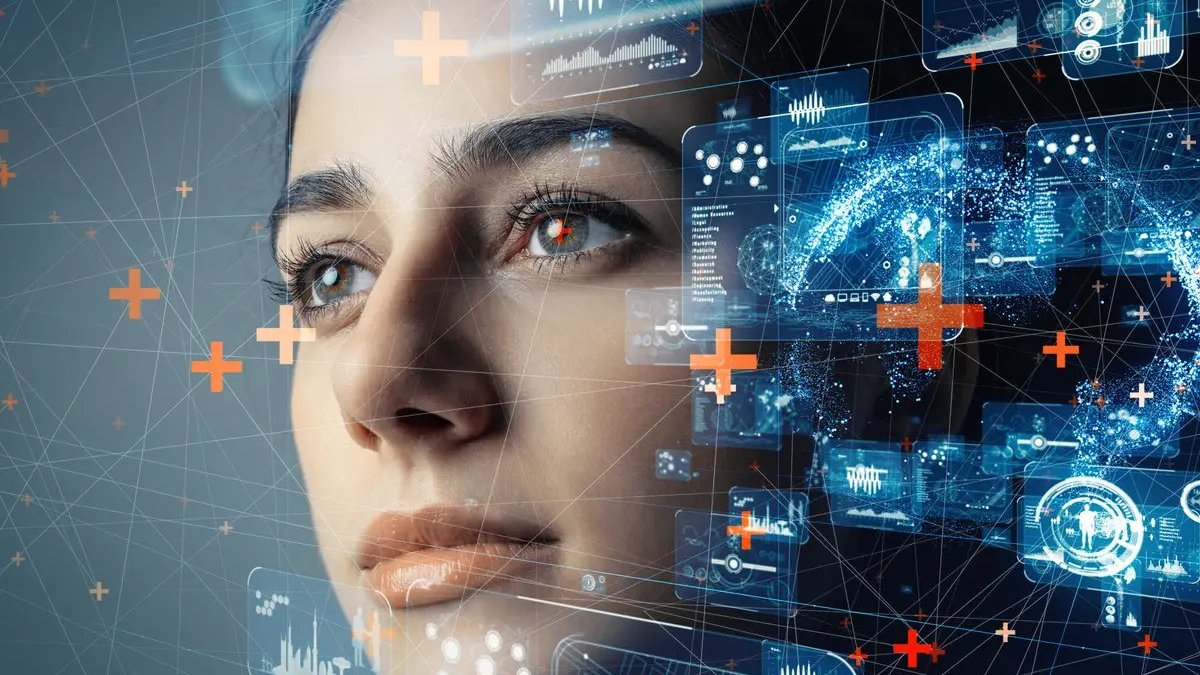
Artificial Intelligence is something that many of us are cautious to know, it is an issue that, in addition to having left not so long ago, will have a great impact on all areas of everyday life. Companies with different objectives and long-term thoughts in the future in which we are helped by machines that think intelligently are increasing. Each struggling to achieve that logic of a machine by various means such as machine learning or others.
In the following list, we collected the top books that deal with the philosophical side of AI, AGI (Artificial General Intelligence) and ASI (Artificial Super Intelligence). They show us a clear vision of how we will live in the 22nd century, our relations with robots and even several ethical issues, that may be solved in the upcoming years.
The most important question about AI are:
- Will Robots or AI we create ever become friendly? If it doesn’t, will we all have to start working together?
- Will they able to simulate emotions?
- Will we have real connections to Robots (Androids)?
AI will have many purposes and goals, but the most important ones are:
- to provide us with the necessary tools to improve our life,
- to assist us with complex tasks in different domains, like medicine, transport, manufacturing, or transportation,
- to be a valuable partner, capable of enhancing our happiness and well-being.
Too many questions on my side, let’s see the best AI ethics books:
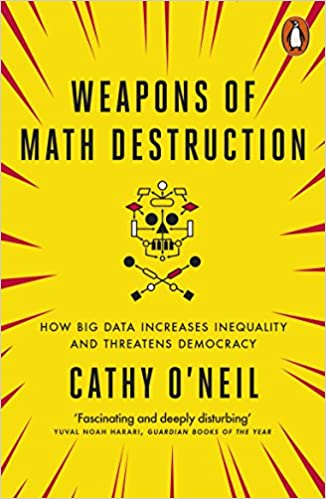
Weapons of Math Destruction, by Cathy O’Neil
The modern age of the algorithm allows people to make important decisions based on an algorithm instead of individual judgment. This should end up in the usage of fair systems, in which people are judged based on the same criteria, and without biases.
The author states that model designers should take more responsibility for their applications and models they create. Also the government should take further steps to make centralized systems unbiased. This insightful book allows us to ask the tough questions, what we should change for a more trustworthy AI of the future.
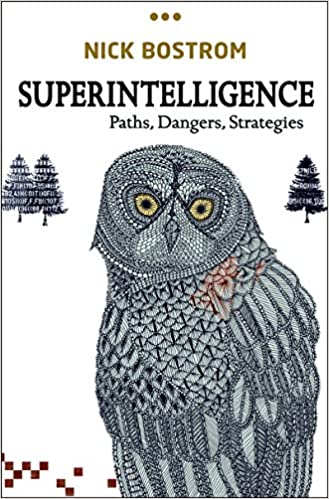
Superintelligence, by Nick Bostrom
The Swedish-born philosopher introduces us to the world of deep philosophy in order to understand the basic concepts and forms of AGI and ASI. The book also describes some likely and some doomsday scenarios about the future and of course some alternative strategies for humanity.
We can all learn something from these thoughts, but they will lead to certain conclusions. Deep Philosophy explains why we are all such simple beings in some sense.
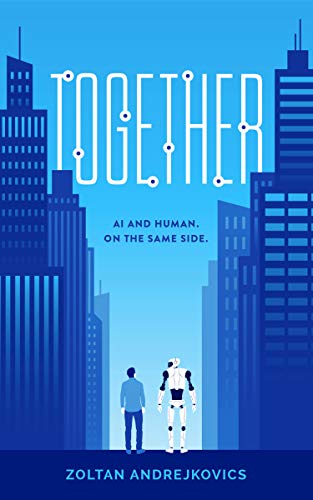
Together, by Zoltan Andrejkovics
This book is specifically written for this niche, the title itself takes a commitment towards to a balanced living between AI and people. In Together, you will find several real-life questions connected to the ethical, practical and philosophical side of AI and AGI. The author also shows us his vision for an ideal outcome of our relationship with later ASI (no doomsday scenario).
We also enjoyed the fictive discussions between the future ASI and humans at the beginning of every chapter. This is one book, which will keep you updated on the rapidly evolving technology.
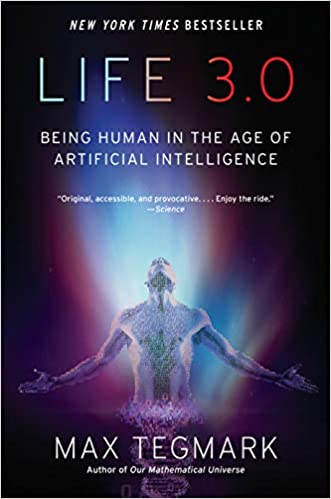
Life 3.0, by Max Tegmark
This book first clears some ground expressions like “memory”, “computation” and “intelligence” than slowly connects to dots how AI will affect our society. We will find also several utopias and dystopia scenarios in this book.
Here are three key insights from Max about life in 2030 and beyond:
- Advances in technology will allow for unprecedented levels of prosperity and well-being for all humanity.
- The rise of artificial intelligence will create new ways for humans to connect and collaborate with each other, increasing our understanding and knowledge even further.
- Our ability to explore space will continue to increase, opening up new worlds and allowing us to learn more about our universe.
Everyone reading this book will going to wonder if it is happening now or not, this fact alone gives great power to this book.
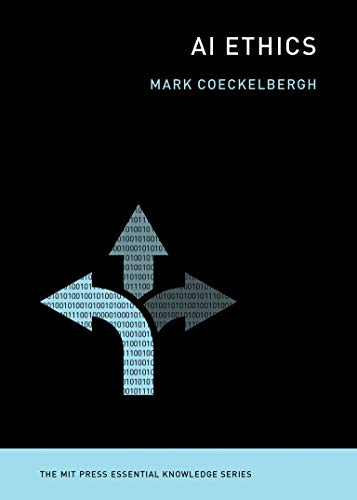
AI Ethics, by Mark Coeckelbergh
There is an urgent need to answer some of the most important ethical questions raised by AI in the last years. The author examines Google’s search engine, Facebook’s targeted advertising, Alexa-Siri phenomena and self-driving cars from ethical perspective. We need to have answers for “what-ifs”, because practical AI is just knocking at our doorstep.
However, the book has a safe and calm point of view about AI. For example, when it comes to Siri, many people are quick to say that the program is not truly intelligent because she cannot answer complex questions. But in reality, Siri is only as intelligent as the person training her.
Despite the flaws, there are major ethical concerns surrounding AI that deserve attention in this book. Discover them to understand the full spectrum of the topic.
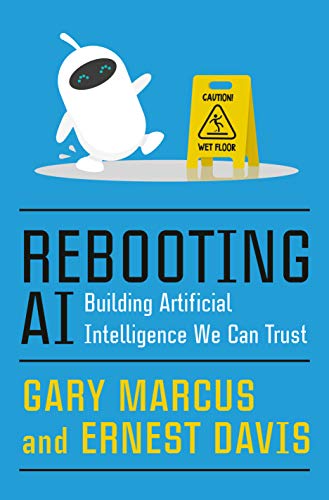
Rebooting AI, by Gary Marcus, Ernest Davis
Almost all AI researchers unanimously adopt machine and deep learning in general as the solution to AGI. Not the authors of Rebooting. Some parts of the book are repetitive, but there are some good ideas hidden in this book.
The author brings in the insights from the past. There is no over emphasis on the problem of AGI, there is no doubt to expect the current society may have several problems thanks to “smart” things.
While the books is aimed general public, there is enough useful material for other audiences to gain deeper perspective into AI.
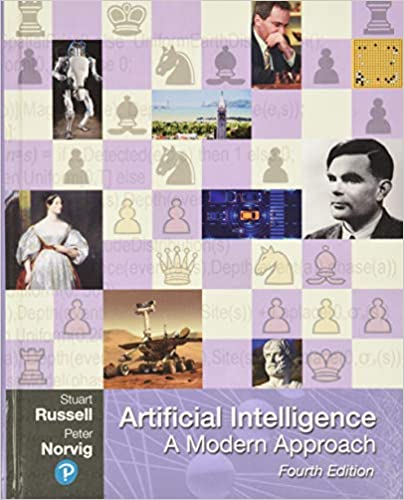
Artificial Intelligence: A Modern Approach, by Stuart Russell
This is the fourth edition of this classic book. The author is known as a computer scientist who did great contributions to artificial intelligence.
Artificial intelligence has been around for over 60 years, but it wasn’t until the mid-1990s that researchers began to explore its potential. Since then, AI has come a long way and is now being used in a variety of fields. This includes everything from transportation to healthcare.
However, there are still many unanswered questions about AI. This is one of the pioneer books in the field of AI which holds the key questions towards to AI.
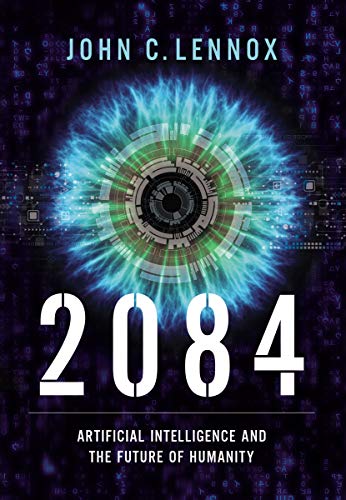
2084, by John C. Lennox
The book shows us a near future scenario in the world of AI society. Will it be likely as George Orwell’s 1984? The author brings some silent evidences how the world will look like in 60 years. The book itself is a good read, we also enjoyed that it brought a Christian perspective into this topic.
2084 is a book that examines one of the most significant developments around the world over the past two centuries. It focuses on the opinions of many leading authors in the fields of artificial intelligence, data analysis, and futurology.
Conclusion
AI ethics is a very important topic right now, and there’s certainly a lot of talk about it. Artificial intelligence has been a big topic over the last few years. There’s been a lot of discussion about how AI could be used and even abused. There are concerns about whether or not AI is a threat to our nation and for people. There are also concerns about whether we can trust an algorithm. We can’t trust a piece of software with our information and opinions. We also have to realize that machines will be a big part of our future , and there will be some consequences.
The problem is this: AI algorithms have no morals. They have no conscience or feelings, as my grandson calls them. And they’re completely made up. We don’t know what they’ll do with this data, and when we let that data be used and shared with third parties, we could have an unintended outcome that could harm people. People need to think about these things.
These are the best AI ethics and philosophy books of the last years, either you are looking for an introduction to AI or you would like to dig deeper the above list will give good recommendation what book you should pick up next.
If you are interested in the newest trends of AI check out our favorite GAN books.
